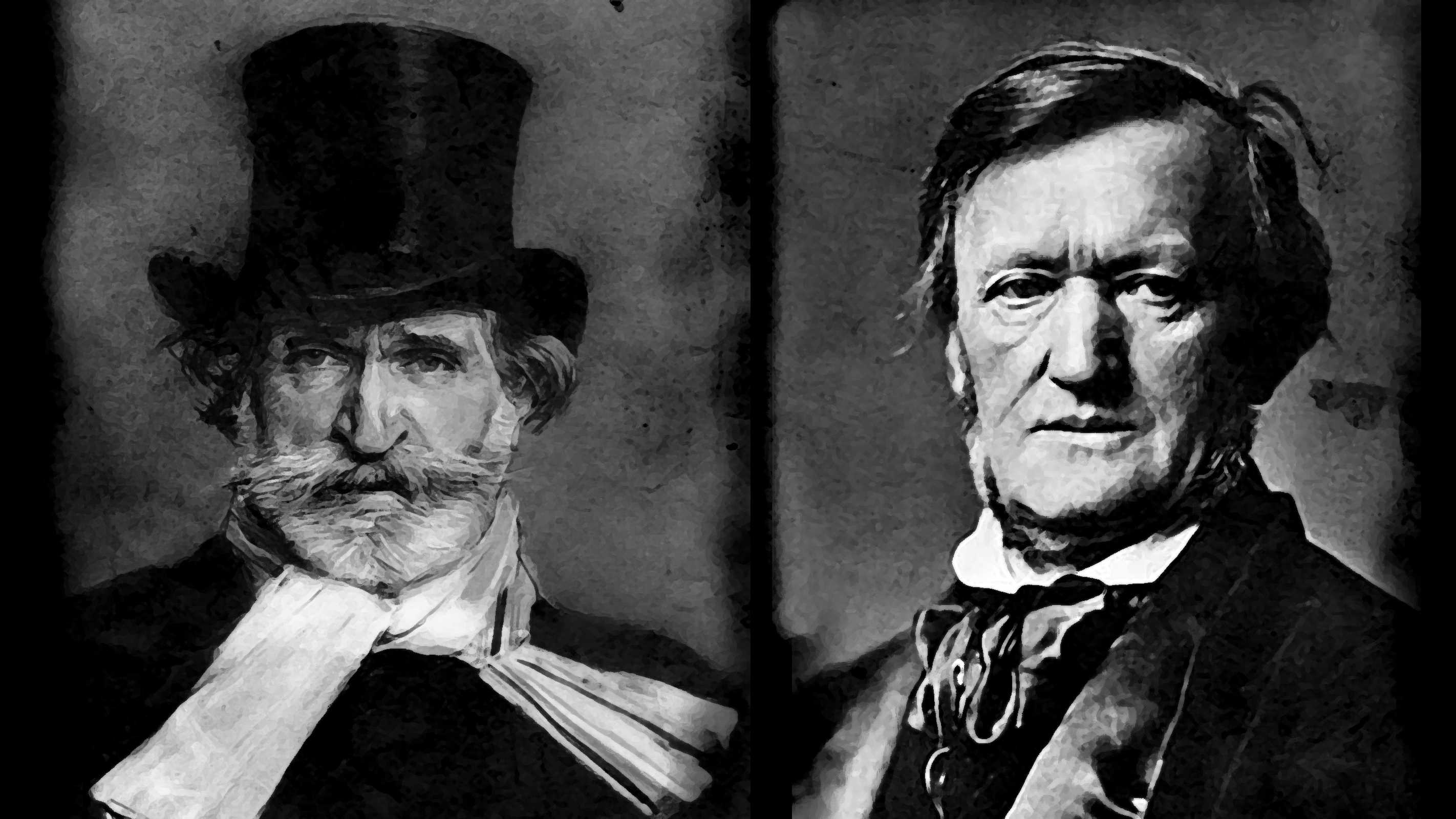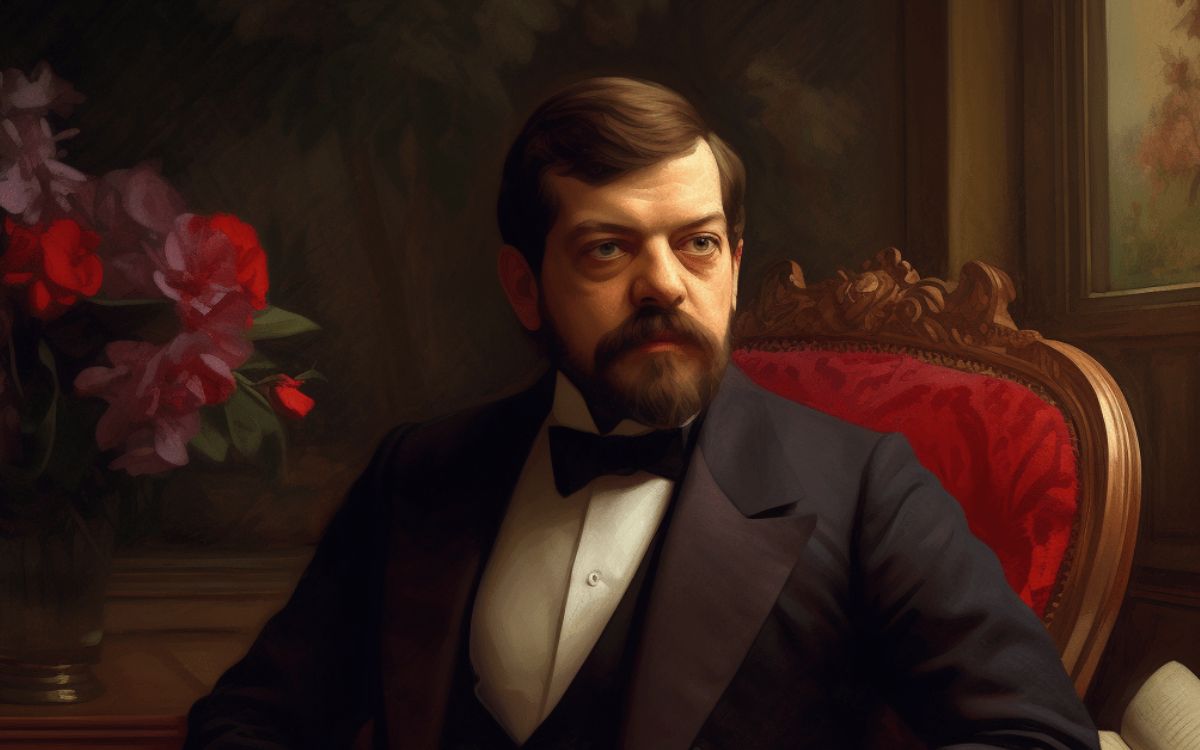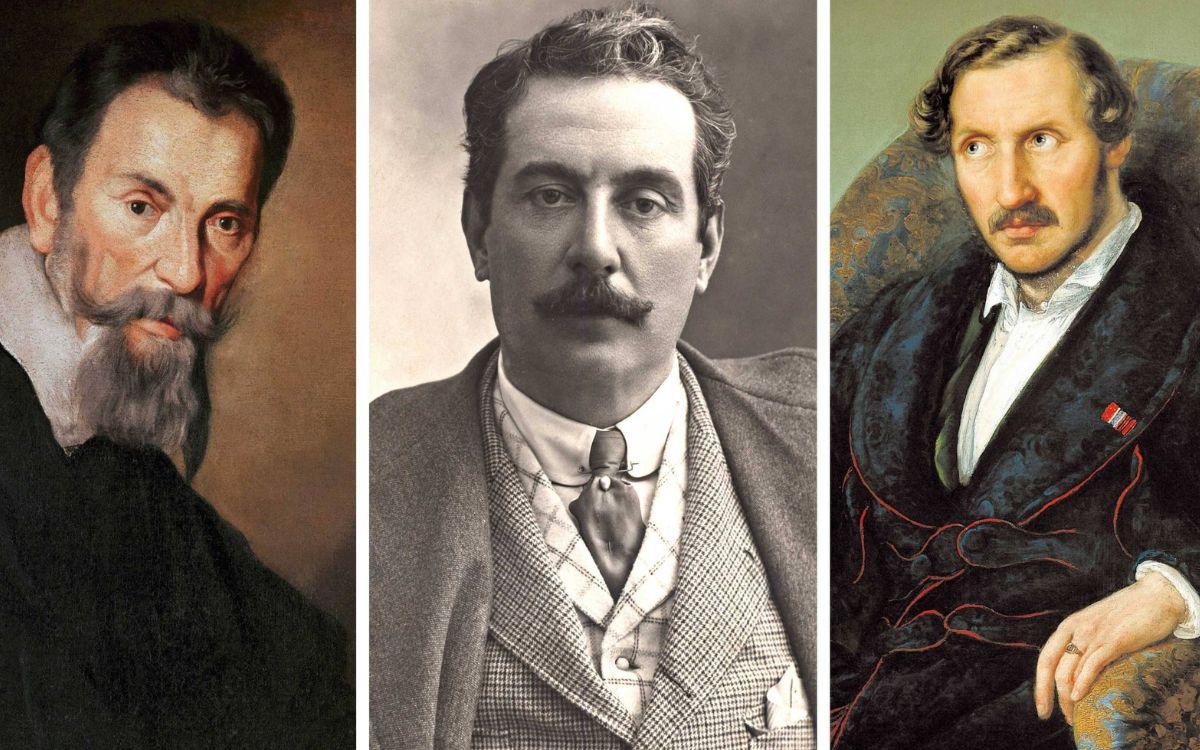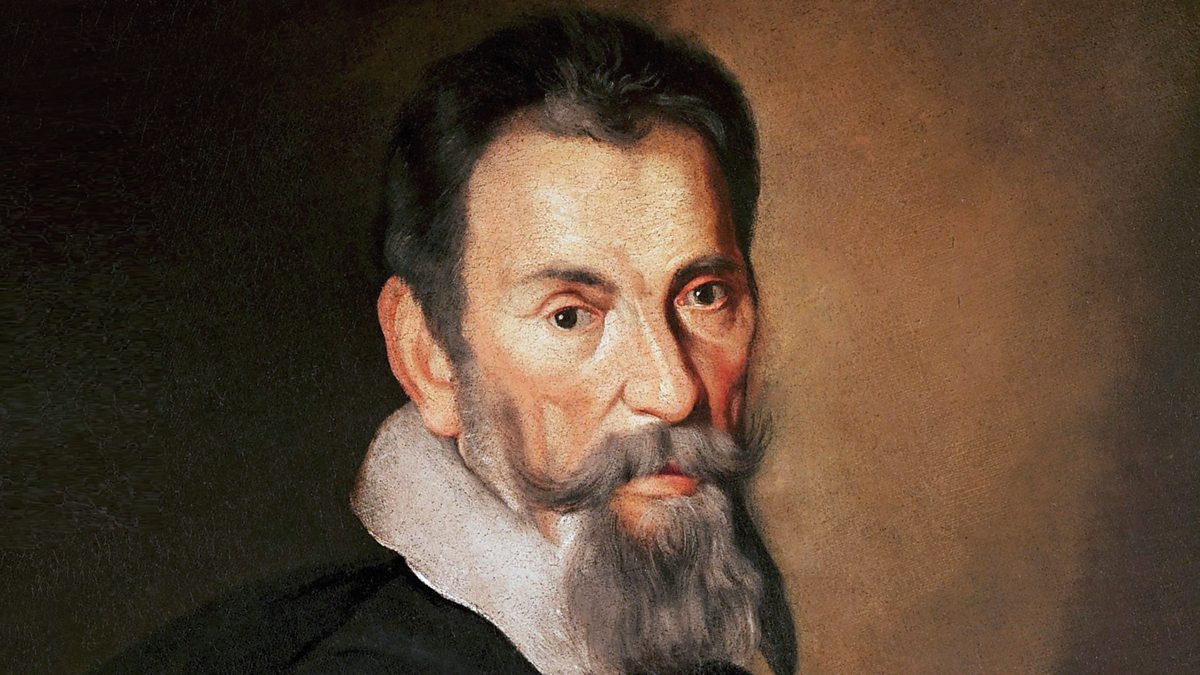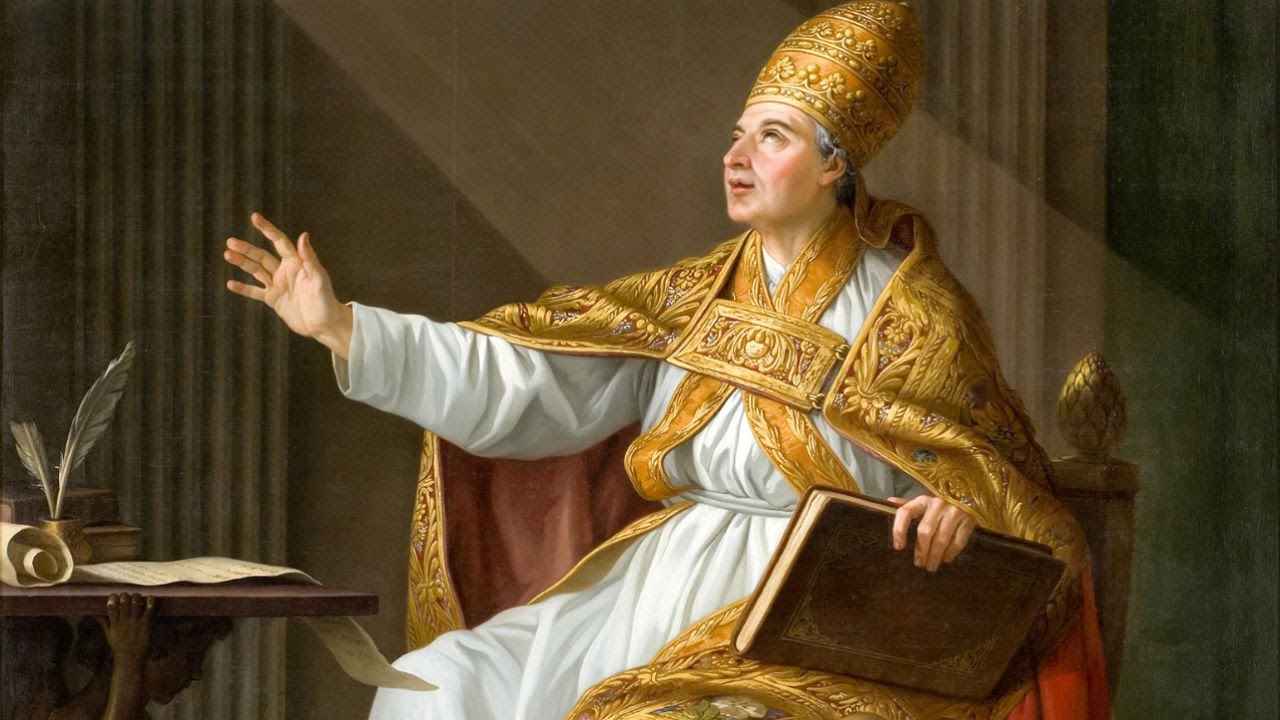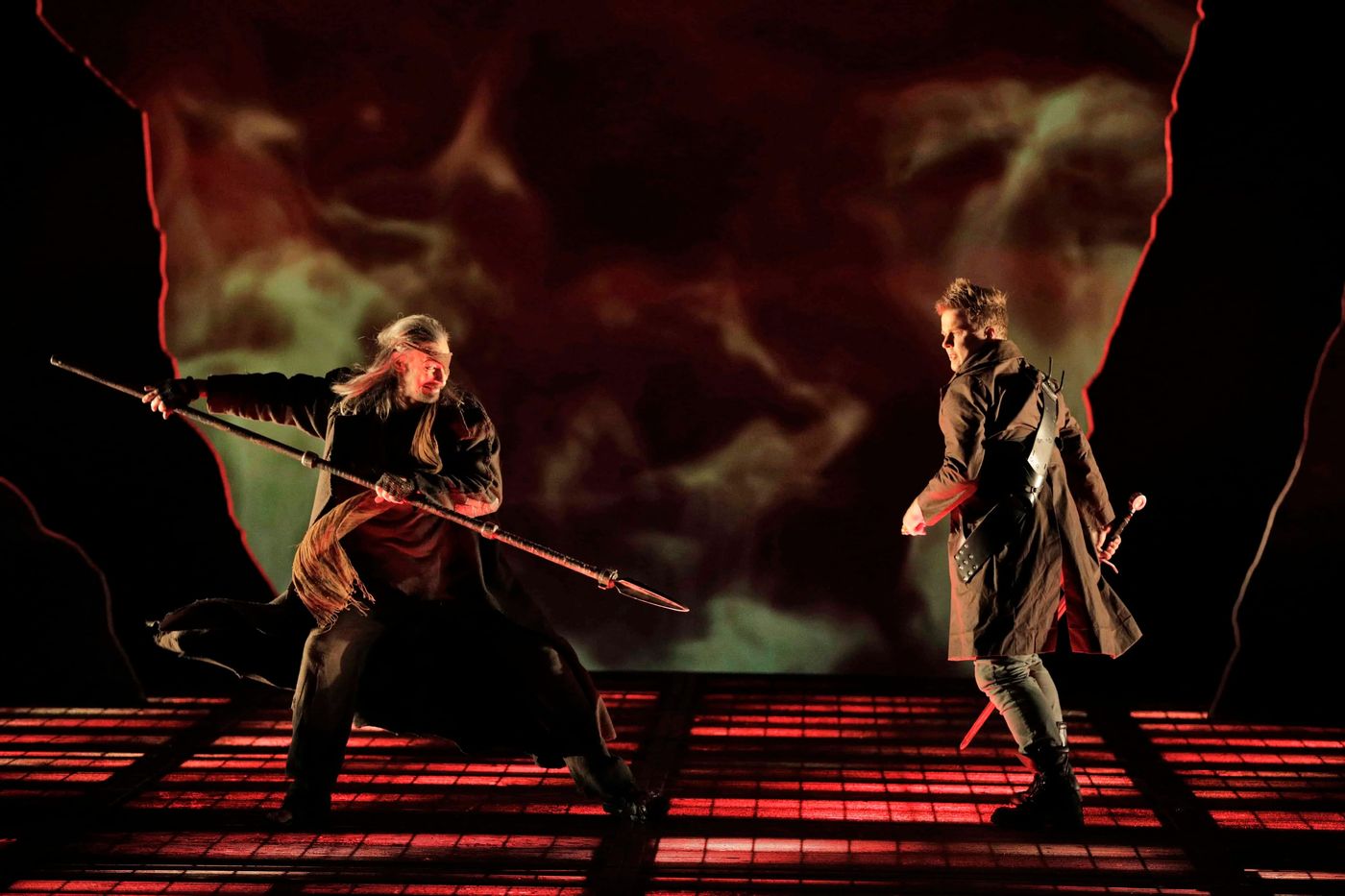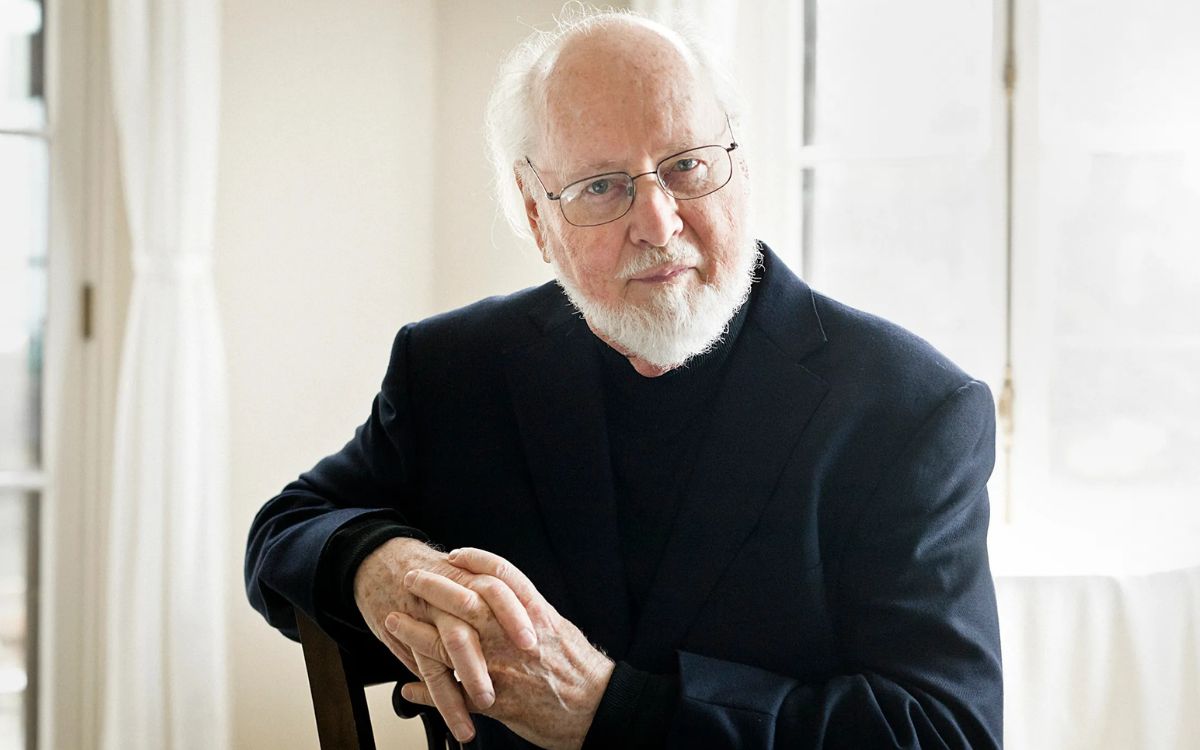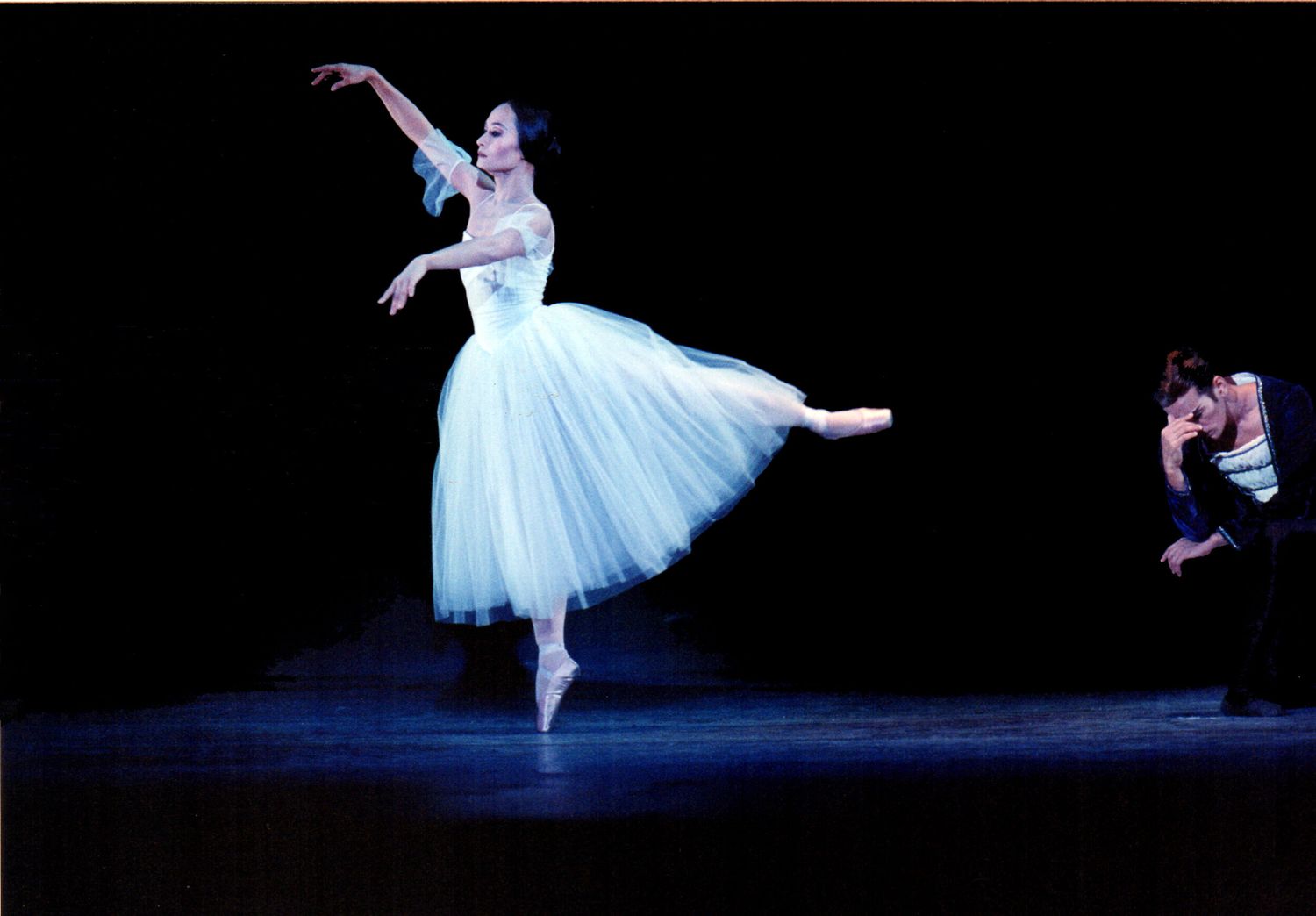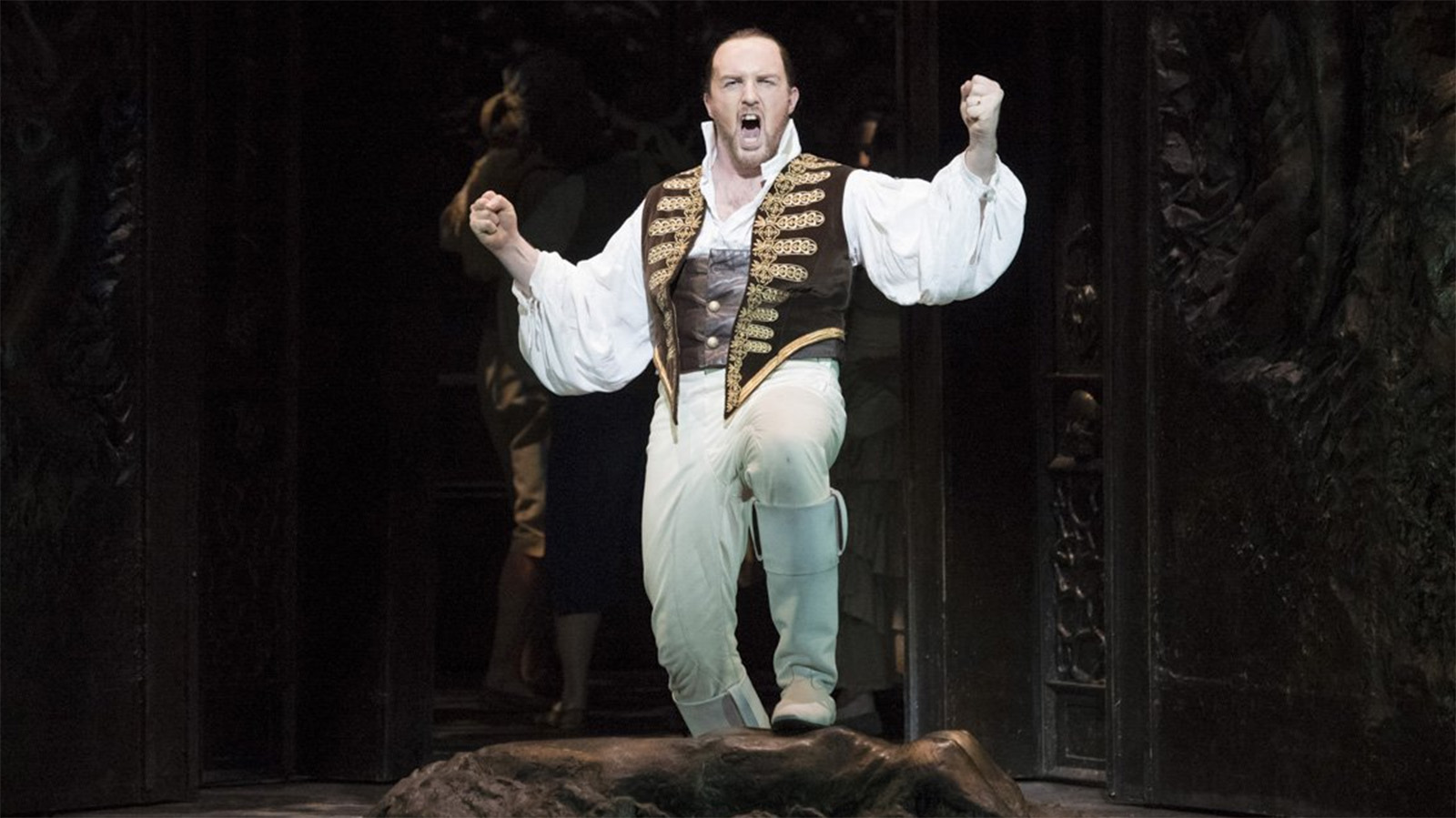Home>Events & Info>Opera>Who Composed The Opera Rigoletto
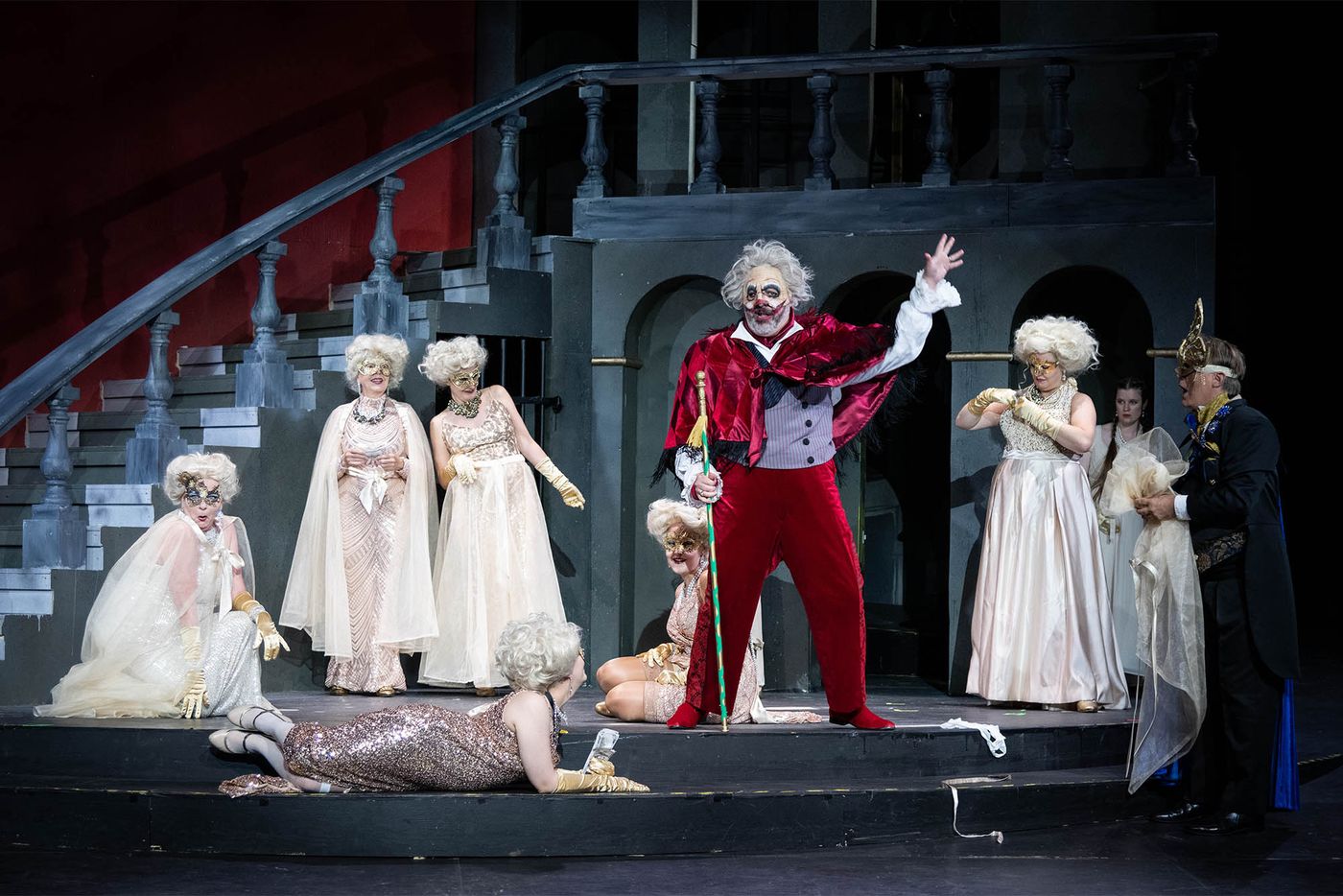

Opera
Who Composed The Opera Rigoletto
Published: January 7, 2024
Discover the composer behind the timeless masterpiece, Rigoletto - an enchanting opera that will captivate your senses with its magnificent melodies and unforgettable performances.
(Many of the links in this article redirect to a specific reviewed product. Your purchase of these products through affiliate links helps to generate commission for AudioLover.com, at no extra cost. Learn more)
Table of Contents
Introduction
Opera is a magnificent art form that combines music, drama, and visual spectacle to create a unique and immersive experience for its audience. One of the most beloved and enduring operas of all time is “Rigoletto.” This dramatic masterpiece was composed by the renowned Italian composer Giuseppe Verdi and first premiered in 1851.
Rigoletto has stood the test of time, captivating audiences with its compelling story, breathtaking music, and profound emotional depth. It is a tragic tale of betrayal, revenge, and the destructive power of love. With its unforgettable characters, intricate plot, and sublime melodies, Rigoletto showcases the power and beauty of the operatic art form.
In this article, we will delve into the world of Rigoletto, exploring its origins, the creative minds behind its composition, and the lasting impact it has had on the opera genre. Through a comprehensive analysis of its music, libretto, and production history, we will unravel the magic and genius that make Rigoletto a cornerstone of opera repertoire.
Brief History of Rigoletto
Rigoletto, an Italian opera in three acts, was first performed on March 11, 1851, at the Teatro La Fenice in Venice. It was composed by Giuseppe Verdi, one of the most influential and celebrated composers in the history of opera. The libretto, written by Francesco Maria Piave, is based on Victor Hugo’s play “Le roi s’amuse” (The King Amuses Himself).
Originally, the opera faced challenges with the censorship authorities due to its controversial and provocative subject matter. Victor Hugo’s play was deemed morally questionable, and Verdi and Piave had to navigate around these restrictions. With strategic changes to the storyline and characters, they managed to secure approval for the opera’s performance.
Rigoletto takes place in 16th century Mantua, Italy. It revolves around a hunchbacked court jester named Rigoletto, who works for the lecherous Duke of Mantua. Rigoletto’s life takes a dramatic turn when his relentless mockery leads to a curse being placed upon him. As the story unfolds, we witness his desperate attempts to protect his innocent daughter Gilda from the Duke’s advances and the tragic consequences that follow.
Despite the initial challenges, Rigoletto received an overwhelmingly positive response at its premiere, with the audience applauding and cheering for Verdi and the cast. It quickly gained popularity and was performed in various opera houses across Europe, solidifying Verdi’s reputation as a master composer.
Over the years, Rigoletto has undergone numerous adaptations and interpretations, showcasing its enduring relevance and artistic value. Its complex characters, emotional intensity, and dramatic plot have made it a favorite among opera enthusiasts and performers alike.
Today, Rigoletto remains part of the standard repertoire of opera houses worldwide. Its timeless themes of love, betrayal, and the abuse of power continue to resonate with audiences, ensuring its place as a cornerstone of the operatic canon.
Giuseppe Verdi: The Composer of Rigoletto
Giuseppe Verdi, born on October 9, 1813, in Le Roncole, Italy, is widely regarded as one of the greatest opera composers of all time. His music is renowned for its emotional depth, dramatic intensity, and powerful melodies. Verdi’s career spanned over five decades, during which he composed numerous operas, including the timeless masterpiece Rigoletto.
Verdi’s musical talent was evident from a young age, and he received a solid musical education in his hometown of Busseto. His early works, such as “Nabucco” and “Macbeth,” established him as a rising star in the opera world. However, it was with Rigoletto that Verdi truly reached new heights of artistic achievement.
In composing Rigoletto, Verdi demonstrated his mastery of storytelling through music. He skillfully depicted the complex emotions and inner turmoil of the characters, immersing the audience in their world. The music of Rigoletto is characterized by its passionate melodies, breathtaking arias, and intricate orchestrations.
One of the most iconic aspects of Rigoletto is Verdi’s ability to give each character a distinct musical voice. The Duke of Mantua, with his seductive charm, is portrayed through lyrical and virtuosic arias, such as “La donna è mobile.” In contrast, Rigoletto’s hunchbacked character is represented by music that alternates between dark, brooding passages and moments of poignant vulnerability.
Verdi’s innovative compositions in Rigoletto revolutionized the opera genre. He moved away from the traditional structure of set piece arias and recitatives, creating a seamless flow of music that perfectly matched the dramatic pacing of the story. His music accentuated the emotional tension and heightened the impact of the opera’s most poignant moments.
Throughout his career, Verdi had a profound understanding of the human condition, and this is evident in Rigoletto. Through his music, he explores themes of love, power, betrayal, and the consequences of one’s actions, creating a profound and deeply moving experience for the audience.
Giuseppe Verdi’s contribution to the opera world cannot be overstated, and Rigoletto stands as a testament to his mastery as a composer. His ability to capture the essence of the characters, portray their emotions with depth and nuance, and create music that resonates with audiences centuries later is a testament to his brilliance.
Even today, Rigoletto continues to be staged and celebrated for its timeless music and compelling storytelling. Verdi’s music in Rigoletto remains a cornerstone of the operatic repertoire, enchanting audiences with its beauty, power, and emotional impact.
The Librettist: Francesco Maria Piave
Behind every great opera is a talented librettist who crafts the words and dialogue that bring the story to life. In the case of Rigoletto, that creative genius was Francesco Maria Piave.
Piave, born on May 18, 1810, in Murano, Italy, was a poet and librettist who collaborated closely with Giuseppe Verdi on several of his operas. He had a long-lasting and fruitful partnership with Verdi, with Rigoletto being one of their most successful collaborations.
Piave’s role as a librettist was to adapt Victor Hugo’s play “Le roi s’amuse” into a form suitable for opera. He faced significant challenges due to its controversial subject matter, as the original play was considered scandalous and morally questionable.
Working closely with Verdi, Piave made strategic changes to the storyline and characters to navigate the censorship restrictions placed on the opera. He transformed the character of the king into the lecherous Duke of Mantua and introduced the pivotal role of Rigoletto, the hunchbacked court jester. Piave’s talent for poetic expression and storytelling was crucial in ensuring that the adapted libretto would maintain the dramatic power and emotional impact of the original story.
Piave’s collaboration with Verdi extended beyond the composition process. He also worked closely with the composer on the musical structure and phrasing of the libretto to sync perfectly with Verdi’s music. Together, they crafted a masterpiece that seamlessly blended music and drama, enhancing the emotional impact of the opera.
While Piave’s name may not be as widely recognized as Verdi’s, his contribution to Rigoletto cannot be understated. His skillful adaptation of Victor Hugo’s play and his lyrical and evocative libretto work harmoniously with Verdi’s music, creating a profound and captivating opera.
Francesco Maria Piave continued to collaborate with Verdi on other notable operas, including “La Traviata” and “Il trovatore”. However, it is Rigoletto that remains one of their most enduring collaborations, showcasing Piave’s talent for storytelling and his ability to capture the essence of the characters in his poetic words.
Thanks to Piave’s masterful libretto, Rigoletto stands as a testament to the power of collaboration between composer and librettist. The words of Piave, combined with Verdi’s music, have created an opera that continues to enthrall audiences and bring the tragic story of Rigoletto to life on the operatic stage.
Rigoletto’s Premiere and Success
Rigoletto, composed by Giuseppe Verdi with a libretto by Francesco Maria Piave, had its premiere on March 11, 1851, at the Teatro La Fenice in Venice. Despite facing initial challenges with censorship due to its provocative subject matter, the opera was met with overwhelming success and has since become one of the most beloved and frequently performed works in the operatic repertoire.
At its debut performance, Rigoletto received a rapturous reception from the audience. Verdi’s music and Piave’s libretto were hailed for their innovative and emotionally impactful storytelling. The principal singers, Felice Varesi as Rigoletto, Teresa Brambilla as Gilda, and Raffaele Mirate as the Duke of Mantua, delivered extraordinary performances that brought the characters to life.
The success of Rigoletto can be attributed to several factors. Firstly, Verdi’s music captivated the audience with its powerful melodies and dramatic intensity. From the iconic aria “La donna è mobile” to the heart-wrenching quartet “Bella figlia dell’amore,” Verdi’s compositions created a deep emotional connection with the audience, heightening the impact of the story.
Piave’s libretto, adapted from Victor Hugo’s play, provided a gripping narrative that resonated with audiences. The characters of Rigoletto, Gilda, and the Duke of Mantua were compelling and relatable, and their complex relationships and struggles were brought to life through Piave’s poetic and evocative words.
Following its successful premiere, Rigoletto quickly gained popularity and was performed in opera houses across Europe. Its themes of love, betrayal, and moral conflict struck a chord with audiences of the time, resonating with their own societal concerns and human experiences.
Over the years, Rigoletto has continued to enthrall audiences with its timeless storytelling and poignant music. The opera’s success lies in its ability to explore universal emotions and dilemmas that transcend time and place. Whether in the 19th century or the present day, the opera’s central themes continue to resonate with audiences, ensuring its enduring popularity.
Rigoletto’s success also cemented Verdi’s reputation as a master composer, establishing him as a prominent figure in the opera world. Verdi’s innovative approach to composition, coupled with the powerful and emotionally charged story of Rigoletto, solidified his place as one of the greatest opera composers of all time.
Today, Rigoletto remains a staple in opera houses worldwide. Its dramatic plot, memorable music, and profound emotional depth continue to captivate audiences, making it a cherished and enduring masterpiece in the world of opera.
The Plot of Rigoletto
Rigoletto, set in 16th century Mantua, Italy, tells a tragic tale of love, betrayal, and revenge. The opera revolves around three central characters: Rigoletto, the hunchbacked court jester; Gilda, Rigoletto’s innocent daughter; and the Duke of Mantua, a womanizing and lecherous ruler.
The story begins with Rigoletto, the jester at the Duke’s court, whose sharp wit and mockery make him feared and despised by the townspeople. Rigoletto fiercely guards the secret of his daughter’s existence, keeping her hidden away from the corrupt and dangerous world of the court.
The Duke, known for his promiscuity, becomes infatuated with Gilda when he sees her at church. Disguising himself, the Duke enters the house where Gilda lives with Rigoletto and seduces her with false promises of love. Gilda, naïve and sheltered, falls deeply in love with the charming stranger.
Meanwhile, a group of noblemen discover that Rigoletto has a secret lover and plot to punish him for his mockery by abducting her. The deceitful courtiers convince Rigoletto that the lover is the Countess Ceprano and enlist his help in their scheme.
Alarmed by her lover’s disappearance, Gilda seeks solace in the Duke, unaware of his true identity. As the truth is revealed, Gilda’s heart is shattered, and she realizes the Duke’s true nature.
Rigoletto, consumed by vengeance and remorse, hires an assassin to murder the Duke. The assassin is revealed to be Sparafucile, a professional killer, and his sister Maddalena becomes entangled in the plot. However, in a heart-rending twist, Gilda sacrifices herself, taking the place of the Duke and paying the ultimate price for her love.
In the final moments of the opera, Rigoletto is left broken and devastated, clutching the lifeless body of his daughter. The opera ends with a hauntingly beautiful and poignant aria, “La donna è mobile” reminding us of the fleeting nature of love and the devastating consequences of our actions.
The plot of Rigoletto is a complex exploration of human emotions, moral conflict, and the destructive power of obsession. It presents a dark and tragic story that delves into themes of love, betrayal, and the consequences of one’s actions, leaving a lasting impact on all who encounter it.
Musical Analysis of Rigoletto
Rigoletto, composed by Giuseppe Verdi, is a masterpiece that showcases his exceptional musical talent and innovative approach to opera. The music of Rigoletto is characterized by its emotional depth, powerful melodies, and intricate orchestration, all of which contribute to the opera’s dramatic impact.
Central to the musical fabric of Rigoletto are Verdi’s rich and expressive vocal lines. From the hauntingly beautiful aria “Questa o quella” sung by the Duke of Mantua to the powerful and heart-wrenching “Gualtier Malde!” sung by Rigoletto himself, Verdi’s melodies capture the essence of each character’s emotions and bring them vividly to life. The vocal lines are often characterized by long, lyrical phrases that showcase the singers’ technical prowess and ability to convey a range of emotions.
In addition to the vocal brilliance, Verdi’s orchestration in Rigoletto is masterful. He skillfully uses the orchestra to enhance the dramatic tension and highlight key moments in the story. For example, the storm scene in Act III is accompanied by a dramatic orchestral storm, creating a chilling and foreboding atmosphere. Verdi also employs delicate and tender orchestrations to underscore moments of intimacy and vulnerability, such as the duet between Gilda and the Duke in Act I.
One of the most famous and recognizable pieces from Rigoletto is the Duke’s aria, “La donna è mobile”. This aria showcases Verdi’s ability to craft a melody that is both infectious and emotionally charged. It is a prime example of Verdi’s gift for creating memorable tunes that stay with the listener long after the opera is over.
Another notable aspect of the music in Rigoletto is its seamless integration with the dramatic pacing of the story. Verdi’s composition flows naturally, seamlessly transitioning between lyrical moments and dramatic outbursts, heightening the emotional impact of the opera. The music enhances the tension and conflict between the characters, driving the narrative forward and intensifying the emotional depth of the story.
Throughout Rigoletto, Verdi’s music captures the complex and conflicting emotions of the characters, intensifying the dramatic impact of the opera. It is a testament to Verdi’s ability to ingeniously blend music and drama, allowing them to work in harmony and create a deeply moving and immersive experience for the audience.
Overall, the musical analysis of Rigoletto reveals Verdi’s brilliance as a composer. His innovative melodies, skillful orchestration, and seamless integration of music and drama make Rigoletto a timeless and powerful opera that continues to captivate audiences around the world.
Rigoletto’s Impact on the Opera Genre
Rigoletto, composed by Giuseppe Verdi, has had a significant impact on the opera genre since its premiere in 1851. Its innovative music, compelling storytelling, and emotional depth have cemented its status as a masterpiece and influenced countless composers and performers throughout history.
One of the key contributions of Rigoletto to the opera genre is its realistic portrayal of flawed and complex characters. Prior to Rigoletto, operatic characters were often depicted as archetypes with little depth or nuance. However, Verdi’s vivid and multi-dimensional portrayal of Rigoletto, Gilda, and the Duke of Mantua paved the way for future composers to explore more complex and psychologically rich characters in their operas.
Rigoletto also pushed the boundaries of operatic storytelling. The opera delves into dark themes such as betrayal, obsession, and revenge, challenging the conventional notion that operas should only focus on idealized romances or historical events. Verdi’s willingness to tackle such provocative subjects opened the door for a new wave of dramatic and emotionally charged storytelling in the opera genre.
Another significant impact of Rigoletto is Verdi’s innovative approach to composition. His skillful blending of music and drama created a seamless flow of emotions, with the music elevating and intensifying the narrative. This approach influenced future composers to pay more attention to the integration of music and drama, leading to a deeper and more cohesive experience for the audience.
The success of Rigoletto also gave Verdi the freedom and confidence to explore other daring subjects and push the boundaries of opera even further. In subsequent works like “La Traviata” and “Otello,” Verdi continued to challenge societal norms and delve into the depths of human emotions, cementing his position as an influential figure in the evolution of opera.
Moreover, Rigoletto’s impact extends beyond the realm of classical opera. The opera has had a lasting influence on popular culture, with its melodies and themes being adapted and referenced in various forms of media. The aria “La donna è mobile,” for example, has become a cultural touchstone, recognized by audiences worldwide.
Overall, Rigoletto stands as a testament to the power and potential of opera as an art form. Its impact on the opera genre is undeniable, with its realistic characters, provocative storytelling, innovative composition, and enduring popularity making it a timeless masterpiece. Rigoletto continues to inspire and captivate audiences, ensuring its place as a cornerstone of operatic repertoire and a testament to Verdi’s genius as a composer.
Conclusion
Rigoletto, composed by Giuseppe Verdi, holds a cherished place in the history of opera. Its powerful music, compelling story, and complex characters have made it a beloved and enduring masterpiece. From its premiere in 1851 to its continued popularity on stages around the world, Rigoletto has left an indelible mark on the opera genre.
This tragic tale of love, betrayal, and revenge captivates audiences with its emotional depth and unforgettable melodies. Verdi’s innovative approach to composition, characterized by his seamless integration of music and drama, set a new standard for operatic storytelling. The brilliant libretto by Francesco Maria Piave brought Victor Hugo’s play to life and further enhanced the opera’s impact.
Rigoletto’s influence extends beyond its initial success. The opera’s realistic and multi-dimensional characters have inspired future composers to delve deeper into the psychology and motivations of their creations. Verdi’s fearless exploration of darker themes paved the way for more provocative and emotionally charged storytelling in opera.
Moreover, Rigoletto’s impact reaches beyond the boundaries of the opera world. Its iconic melodies, such as “La donna è mobile,” have permeated popular culture, resonating with audiences outside of the classical music realm and cementing its status as a cultural touchstone.
As we reflect on Rigoletto’s legacy, it is clear that this opera continues to captivate, engage, and move audiences. Its ability to evoke a range of emotions, from joy to heartbreak, and its timeless themes of love, betrayal, and the power of fate ensure its place as a cornerstone of the operatic canon.
In conclusion, Rigoletto stands as a testament to the genius of Giuseppe Verdi and the power of opera as an art form. Its innovative music, rich characters, and poignant storytelling have left an enduring impact on the opera genre and continue to captivate audiences with their timeless appeal. Rigoletto’s significance in the history of opera cannot be overstated, and it remains a treasured and celebrated work of art.

